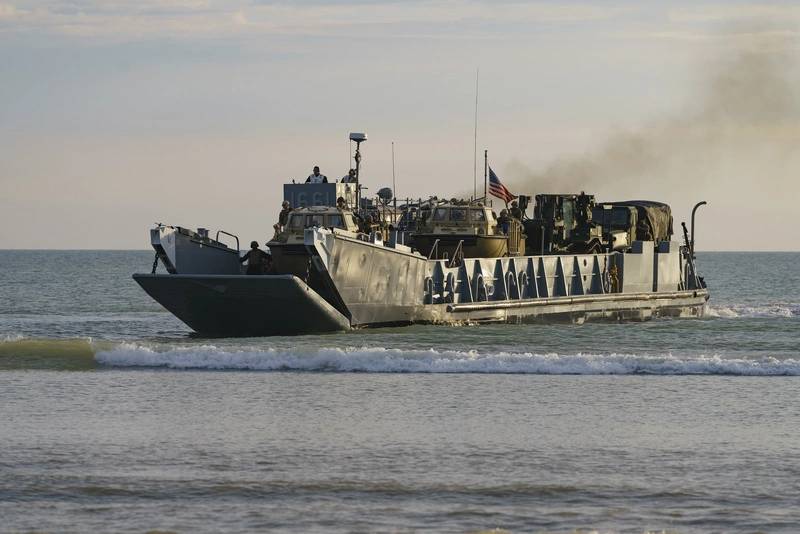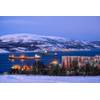Amphibious WW2 'Duck' Vehicle Reenacts Normandy Landing on D-Day Anniversary
With a single piper playing bagpipes on deck, a restored World War Two amphibious vehicle landed on Gold Beach in Normandy on Thursday, exactly 80 years after the allied landing that started the liberation of France from Nazi occupation.
The son of a World War Two soldier, British lawyer and vehicle historian Nigel Stoate, 55, steered the craft ashore after driving off a Royal Marines ship that had picked it up in Portsmouth harbour earlier this week.

"We landed at 7:25 a.m., at exactly the time that British boots hit the beaches on D-Day, it was minute-perfect," Stoate said.
With adjustable tire pressure on its six wheels to make driving on sand easier, the U.S.-built DUKW landing vehicles - usually referred to as "ducks" - played a key role in the allied landing, ferrying troops, weapons and supplies between large transport ships and the beaches.
Stoate's father Jack had been set to take part in the Normandy landing, but in the end the guns for his craft did not arrive in time and he was reassigned to fight in the Netherlands.
"This is the closest we could get to what my father was doing," said Stoate, who was accompanied by his son Ryan, 14, as he took part in the D-Day commemoration.
"We have to remember what those men did 80 years ago. They did so much, they asked for so little and it is because of their bravery that we have our freedom today," he said.
(Reuters - Reporting by Janis Laizans, writing by Geert De Clercq, editing by Alexandra Hudson)
Related News


